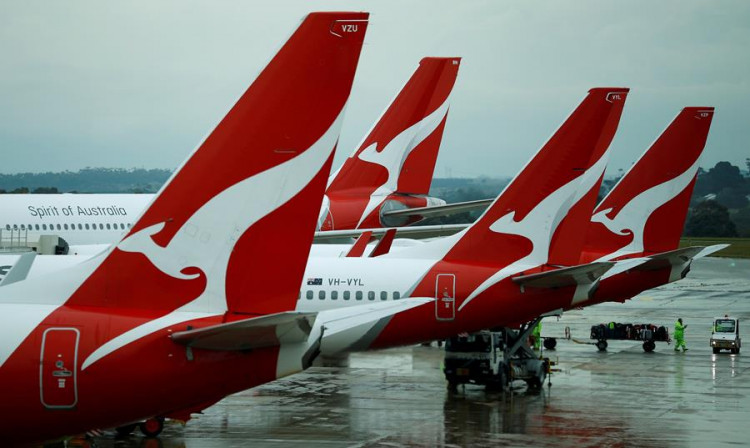Qantas Airways of Australia announced on Thursday that it has picked Airbus SE as the preferred supplier to replace its local fleet, a significant victory for the European plane manufacturer.
Qantas is overhauling its domestic fleet, with the Airbus A321XLR - the extended-range variant of the popular A320neo family - set to replace the Boeing 737 as the airline's short-haul international carrier.
Qantas shares rose as much as 2.3% in early trading before falling 1.2 percent to A$4.81 at 11:03 a.m. in Sydney, giving the airline a market capitalization of approximately A$9.1 billion ($6.5 billion).
Airbus beat Boeing's 737 MAX to become the preferred supplier for what Qantas dubbed 'Project Winton' - named after the airline's 1920 birthplace in central Queensland - which will reshape the airline's fleet for decades to come.
The Australian airline disclosed that it will purchase Airbus's A320neo aircraft to replace the 75 aging Boeing 737s that currently serve as Qantas' domestic workhorses. Additionally, it will purchase Airbus A220 aircraft to replace 20 Boeing 717s that operate regional flights throughout Australia.
Qantas has committed to purchasing 40 planes with a minimum list price of $4.6 billion before reductions. Additionally, the carrier holds purchase-right options on 94 additional aircraft covering a period of more than a decade. The airline said the order is expected to be the largest in Australian aviation history.
The agreement is subject to board approval, which is expected in June 2022 following finalization of agreements with pilots and other concerned parties.
Deliveries will begin in mid-2023 and continue for a decade to replace an aging fleet of 75 Boeing 737s and 20 717s, Qantas said, adding that the new planes will also help the airline reduce its carbon emissions.
"This is a clear indication of our future confidence, and we've locked in pricing ahead of what is likely to be a significant increase in demand for next-generation narrow body aircraft," Qantas Chief Executive Alan Joyce said in quotes by Reuters.
The total order for up to 134 single-aisle jets is believed to be in excess of $50 billion: an enormous sum for any airline at any time, let alone one hit by the COVID-19 pandemic.
"Qantas is able to make these guarantees as a result of how we handled the epidemic, which is a credit to the entire organization," Joyce said.
Qantas and its low-cost Jetstar subsidiary are set to continue flying predominantly Airbus planes on their domestic and international networks for decades to come as a result of the fleet selection.





